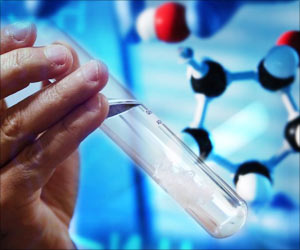Last century biological and chemical warfare reached new heights of ingenuity.
1910-20 - On April 22, 1915, the Germans used poison gas for the first time at Ypres in Belgium. By 1918, one in four shells on the western front was a gas shell, and its use resulting in more than one million casualties and more than 100,000 deaths.
1930-40 - Japan reportedly used plague and other bacteria in the war against China in the 1930s and 1940s.
1983-88 - More recently, there is evidence that Iraq used chemical weapons extensively during the Iran-Iraq war between 1983 and 1988 and subsequently against the Kurds.
Presently, most countries have agreed to destroy military stockpiles of chemical and biological weapons, the biggest remaining threat are terrorism.
1984 - A safe house belonging to the German Red Army Faction, a militant group, was reportedly uncovered in Paris, France.
1993 - The bomb that damaged the World Trade Center in New York in 1993 reportedly also contained cyanide, but the chemical apparently evaporated in the explosion.
1994 - Two members of a religious cult in Oregon successfully used salmonella to poison the salad bars of local restaurants in an attempt to affect the outcome of local elections. More than 700 people were believed to be affected, though none were apparently killed, and the reason for the outbreak was not uncovered for a year.
1995 - The series of Sarin gas attacks made on the Tokyo subway system by a cult in March 1995 that killed a dozen people and injured thousands brought the use of chemical and biological weapons to international attention. Inside the safe house, an improvised laboratory was said to have been found containing flasks of deadly botulism toxin.
Pulling the reins
Although several countries are suspected to retain some chemical or biological weapons capabilities, nearly all have formally agreed to renounce their military use.
Even as early as ancient times, the Greeks and Romans condemned the use of poison as a violation of the rules of war, though they continued to use it.
1925 - After World War I, the Geneva Protocol of 1925 outlawed the use of both chemical and biological weapons in war, but countries were unable to agree on a treaty to ban stockpiles.
1956 - Marshal Zhukov announced to the Soviet Congress that chemical and biological warfare weapons would be used as weapons of mass destruction in future wars.
This caused the US to renew its own programmes, but in 1969, US President Nixon ordered the termination of all research on biological warfare and the disarmament of all such weapons.
This outlawed the production, stockpiling and use of biological weapons. In July 1995, however, Iraq admitted that it had tried to build up stocks of biological weapons after UN inspectors found large amounts of anthrax, botulinum and other toxins.
1993 - A ban on the production, stockpiling and use of chemical weapons - The Chemical Weapons Convention was signed by 130 countries. Iraq has yet to sign this ban, however, and of the 165 countries which have now signed, 62 have yet to ratify the agreement. The current Gulf crisis stems from UN Security Council resolution 687, which calls for the elimination of Iraq's weapons of mass destruction.
1975 -The Biological and Toxin Weapons Convention (BWC), which prohibits the acquisition of biological materials for hostile purposes and armed conflict, entered into force in 1975 and now has the participation of 140 nations (158 nations have signed the BWC, but only 140 of these have also ratified it). However, there is no monitoring mechanism associated with the BWC. |

